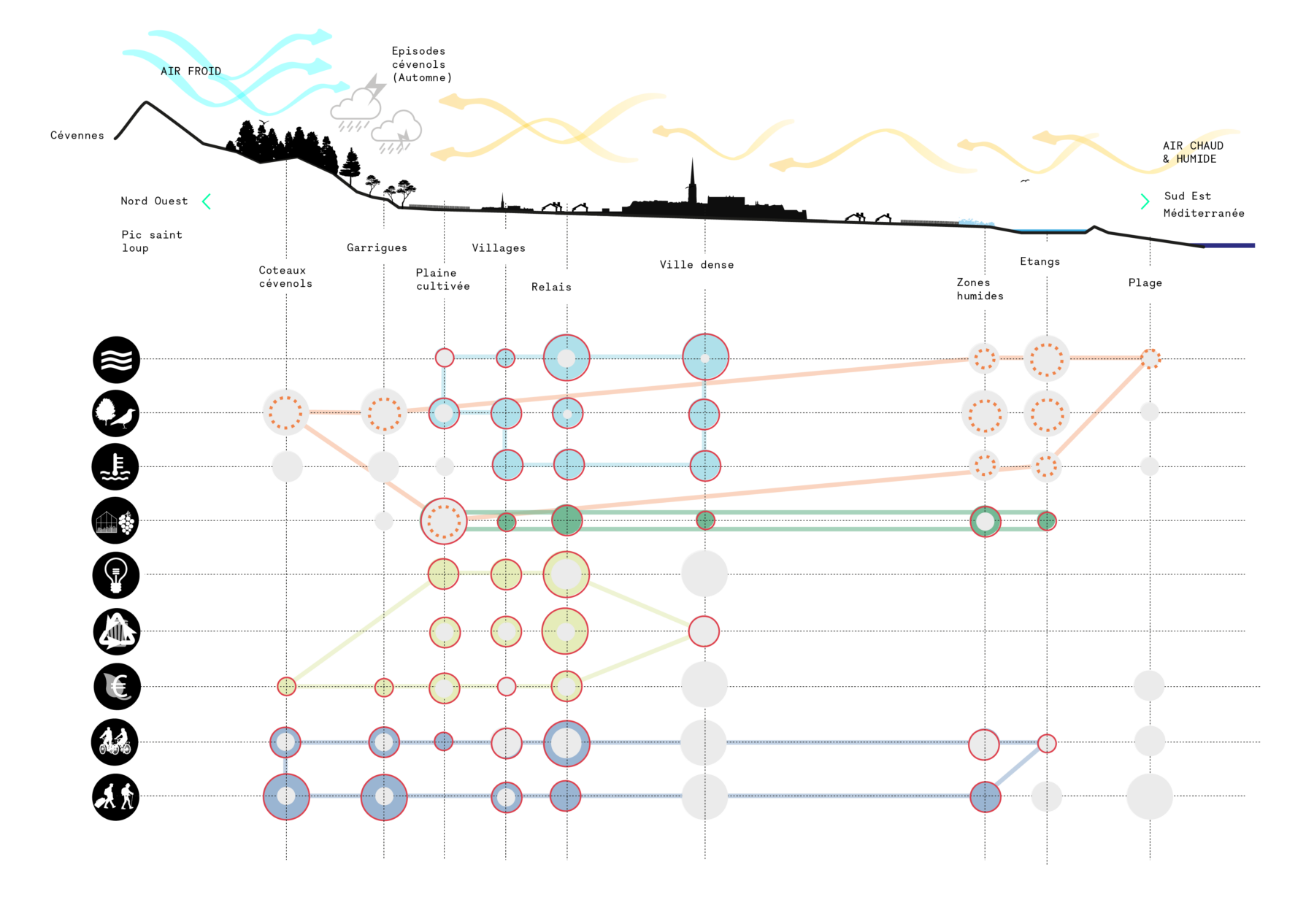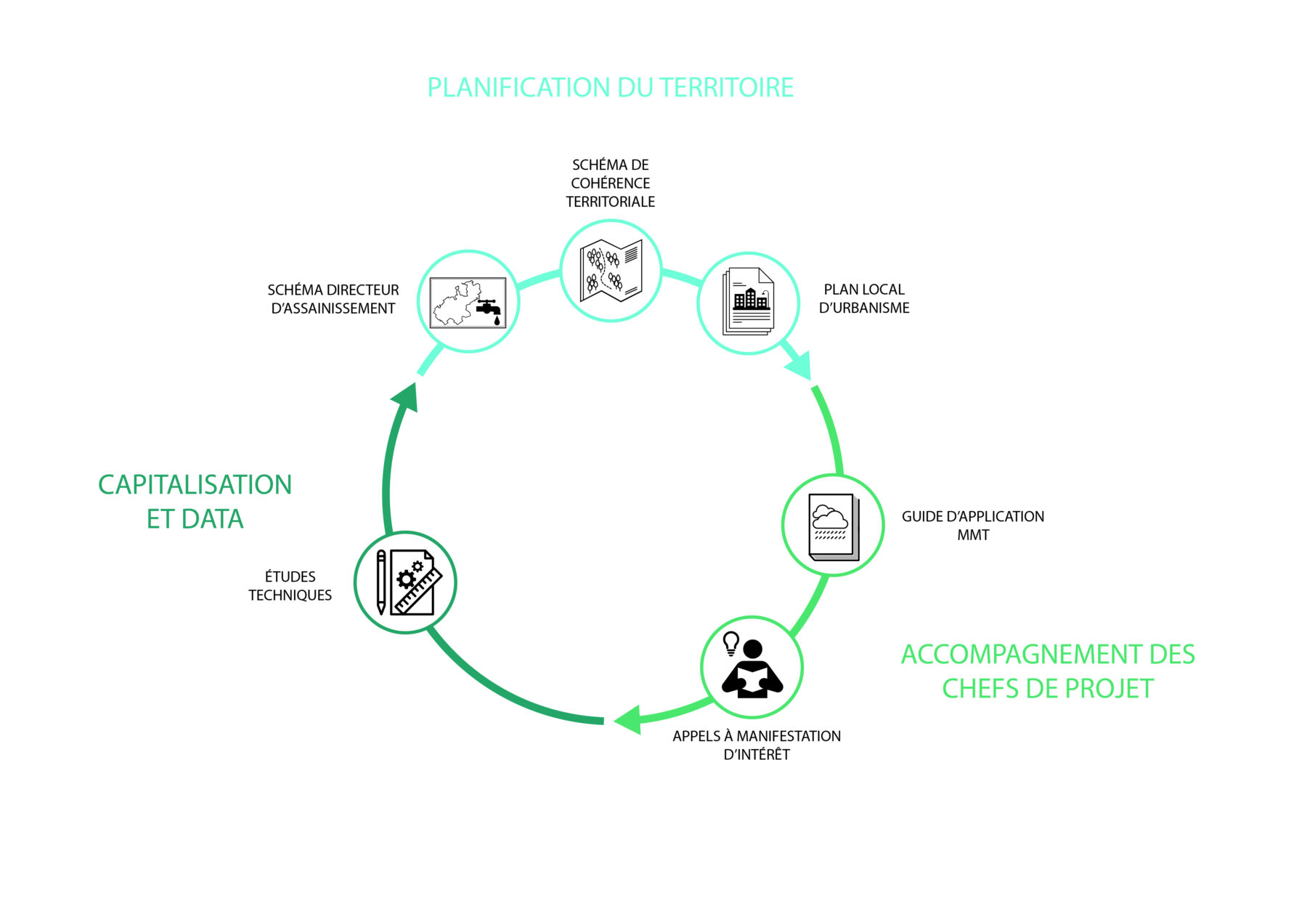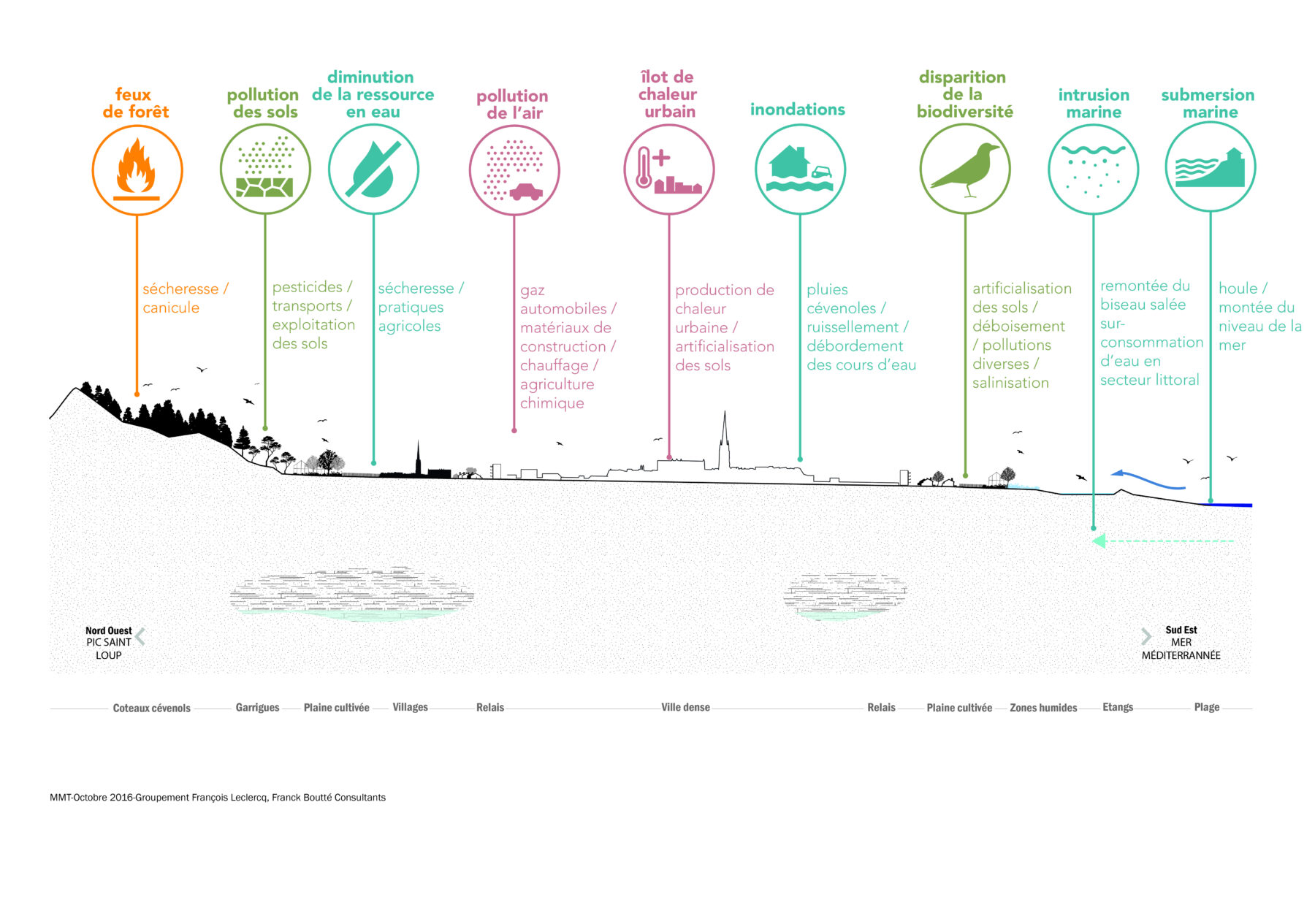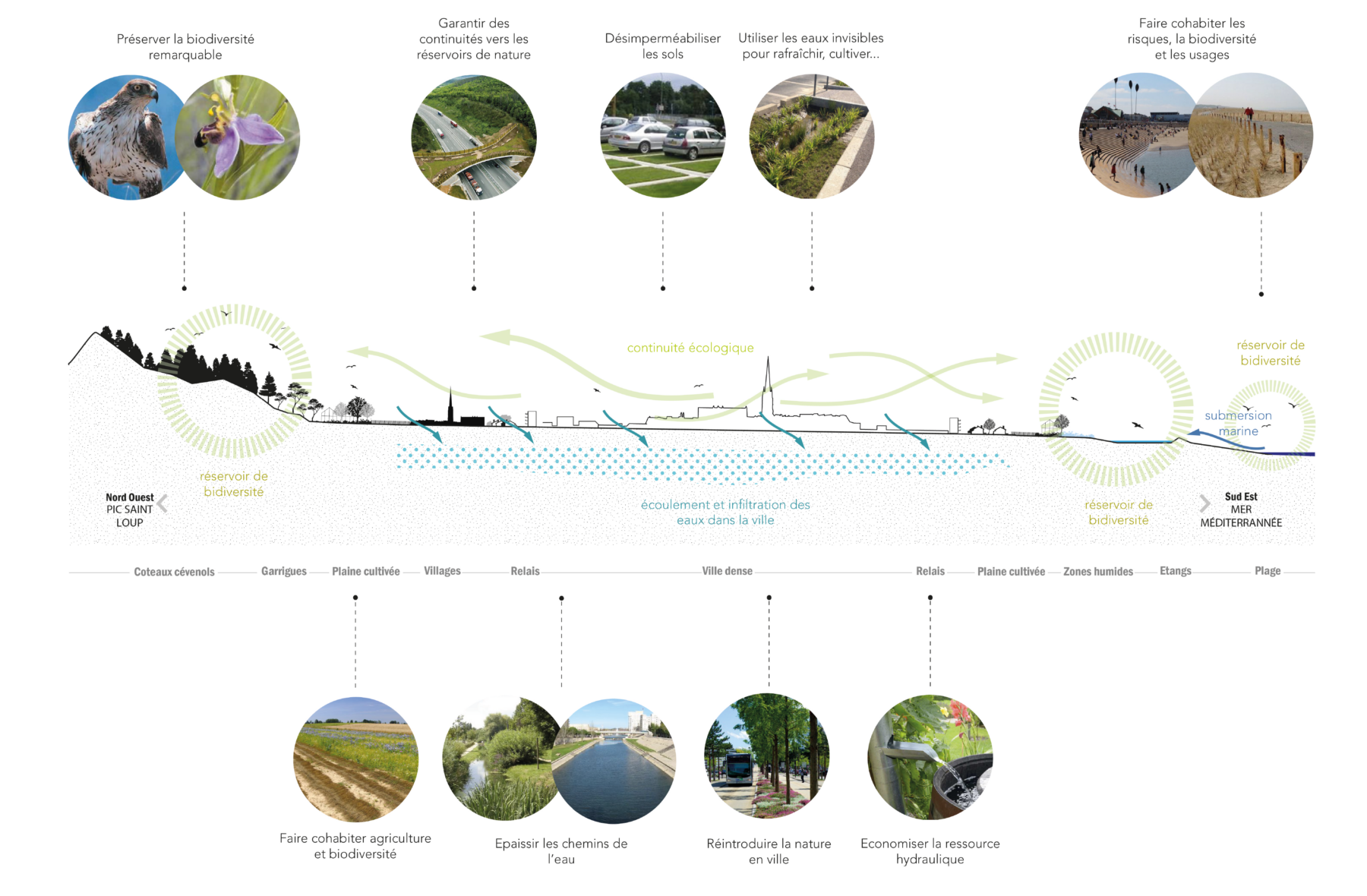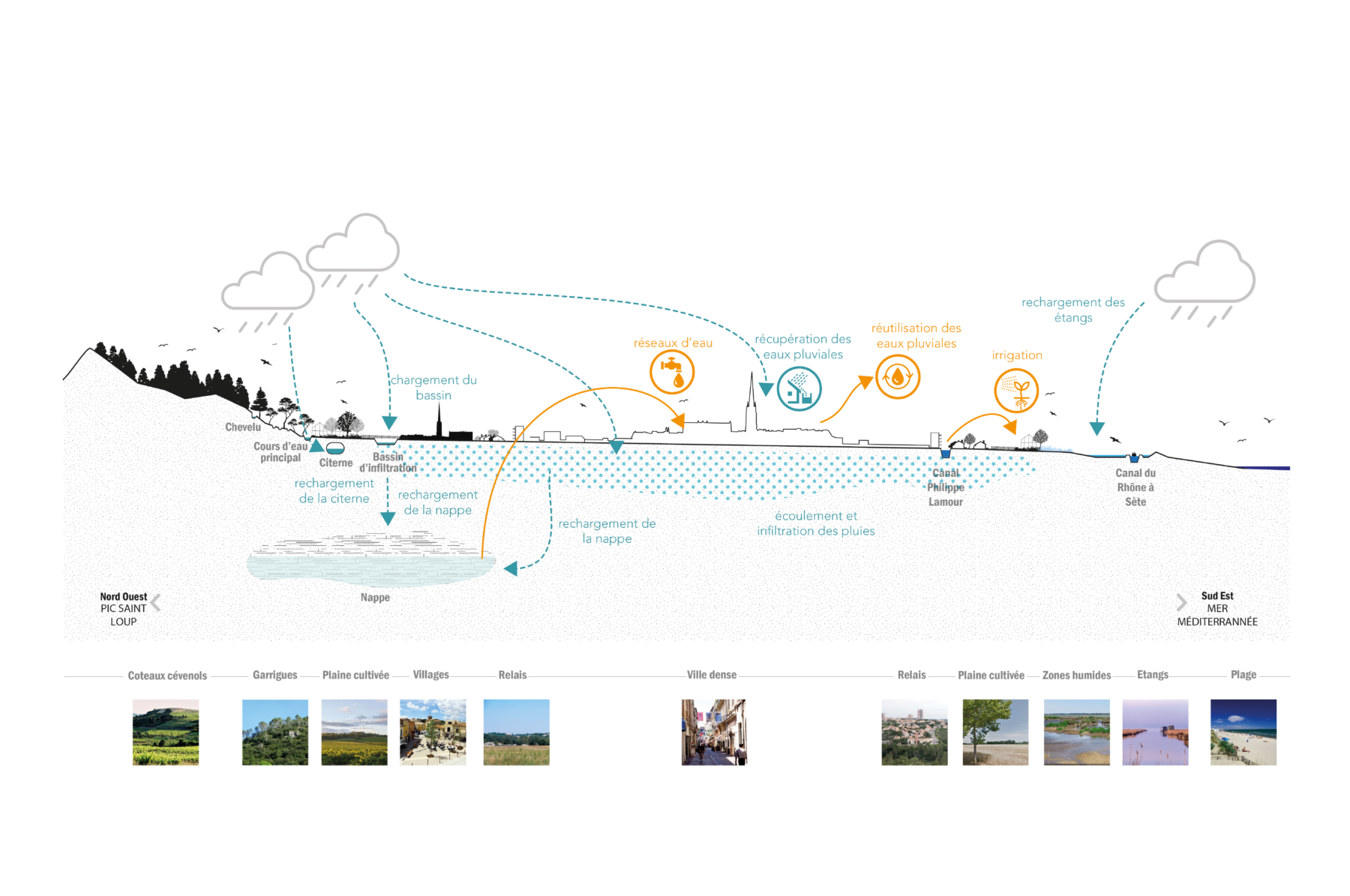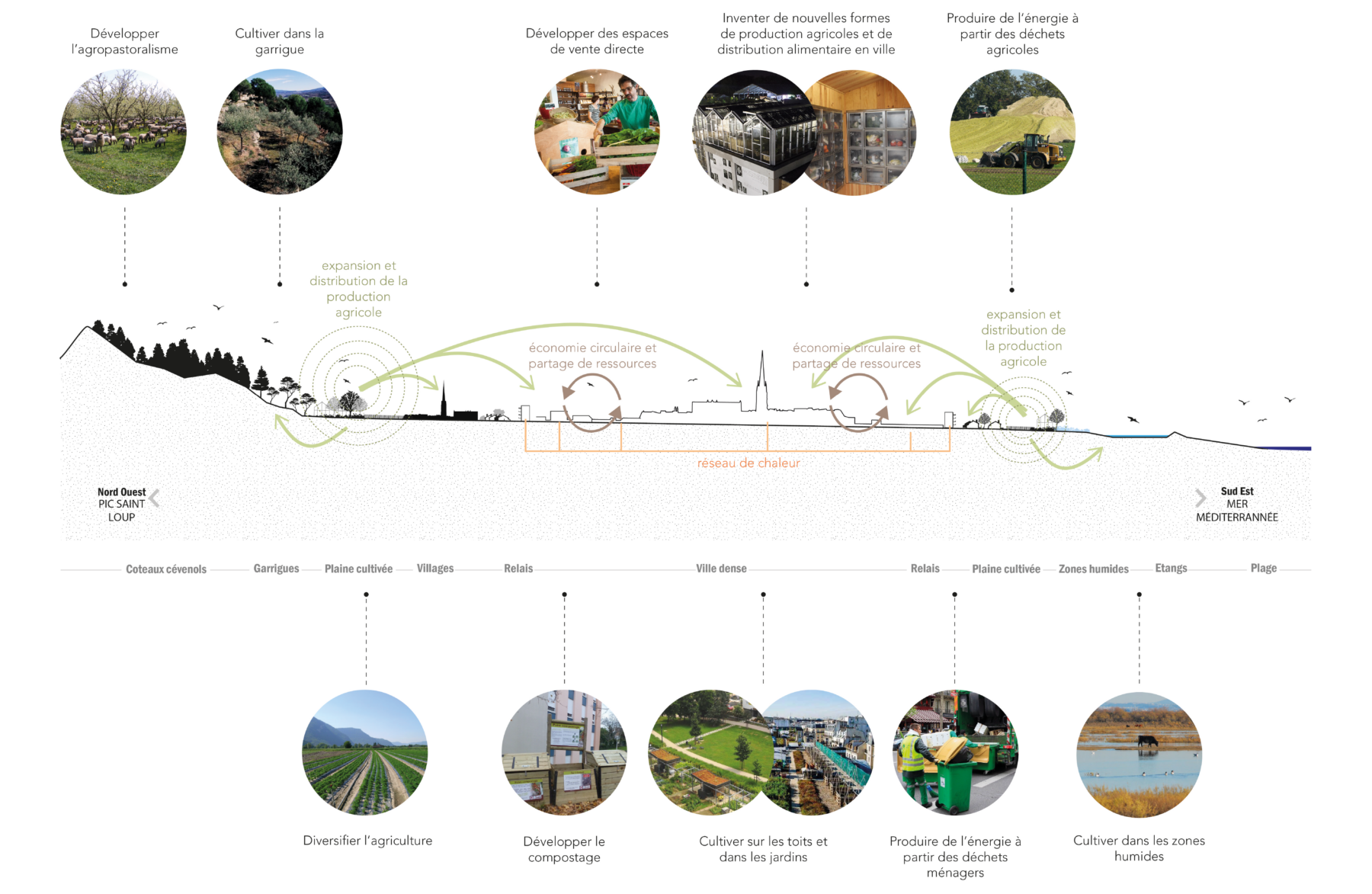Montpellier Métropole Territoire
Montpellier
2016
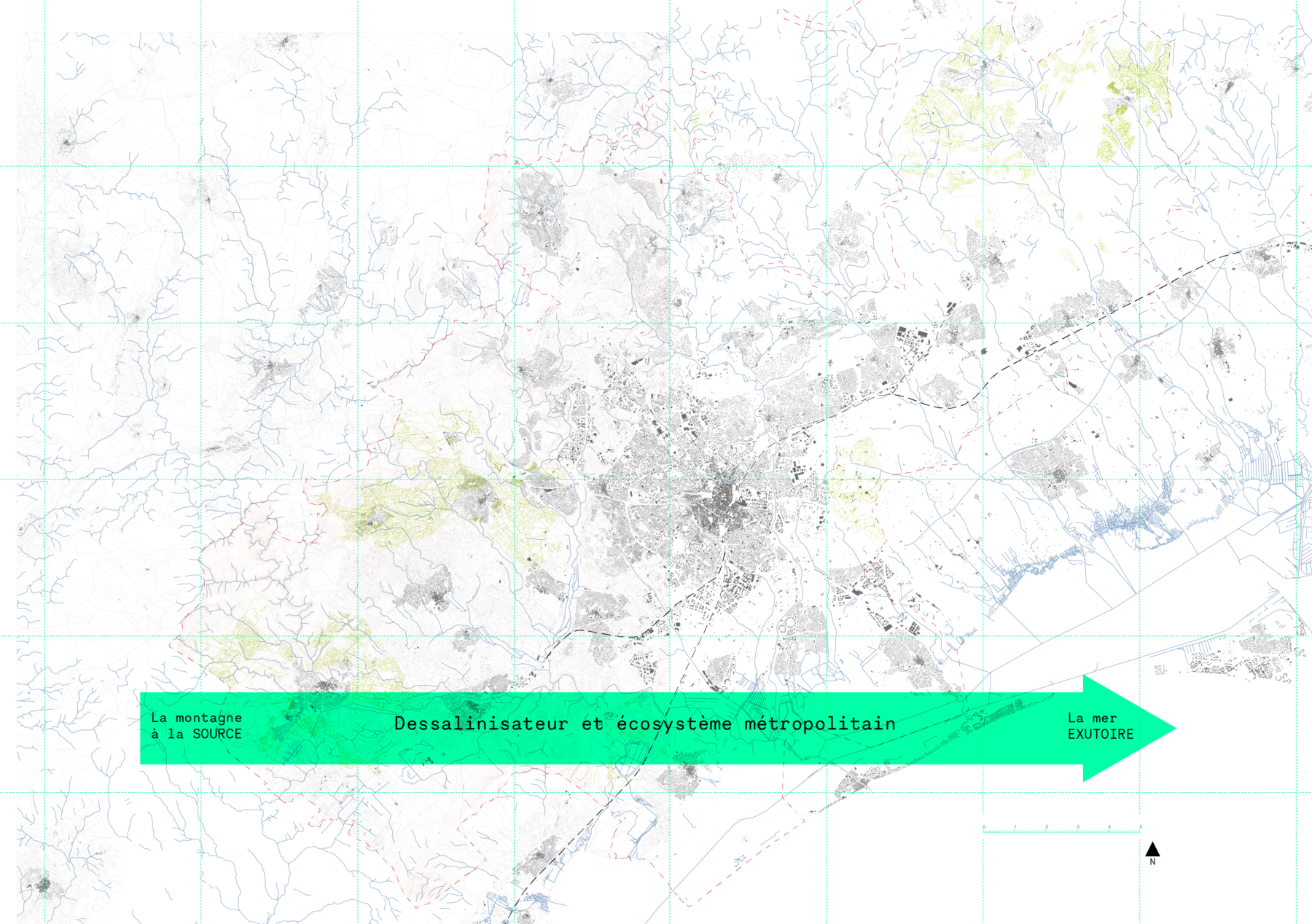
In 2015, together with François Leclercq and Base landscape architects (among other partners), Atelier Frank Boutté developed a region-wide ecological program in advance of the revised Metropolitan Land Use Plan (Schéma de cohérence territoriale, or SCOT) for the Montpellier metropolitan area, “Greater Montpellier, a Productive Metropolitan Area”. It was exceptional in terms of size (43,900 ha) and the local authority’s innovation-driven, forward-looking ambition to conduct a 360-degree assessment of its metropolitan area in order to identify the programming challenges and objectives and set out the broad strokes of its future development. The initial expectation was strongly focused on risk prevention in multiple areas: marine submersion, groundwater salinization, coastal erosion, drought, water stress, wildfires, land artificialization, soil sealing, runoff, and others.
The metropolitan area has long been thought of in terms of the opposition between coastal and inland areas. However, the two are closely interrelated, especially when it comes to the question of risk. Through a positive, collaborative approach, the aim was to factor in risks as an absolute necessity and to see their appropriation as an opportunity for the metropolitan area to embrace a shared strategic vision for its resilience and sustainability. The work we did helped us understand that these risks are not inevitable in fact, but the outcome of land-use choices made at local level that lacked insight into, or did not take sufficient consideration of, environmental factors.
From this emerged a highly naturalistic, ecosystem-based approach that updated the natural ecological cycles originally in force in the region and mapped out the responsibilities of each of the spatial entities that make up the metropolitan area. The goal was to restore these natural ecological cycles—the microclimate from the sea to the Cévennes mountains, the complete water cycle, the life cycle of plants and other organisms—as a prerequisite for mitigating and eradicating problems that are a source of risk. While our approach to the various challenges was naturalistic and ecological, it succeeded in addressing a whole array of issues: the spatial organization of high-density, urbanized zones, mobility, agriculture, risks, socio-economic, and others.
The resulting framework plan was achieved thanks to a pro-active approach to risks, holistic consideration of the issues at play, and a systemic definition of the regional balances to envision, in other words, a metabolic way of addressing the region, transforming the Montpellier metropolitan area into a veritable living novel ecosystem and bioregion.
Client
Montpellier Méditerranée Métropole
Team
François Leclercq (lead urban planning architect), Base (landscape architect), Une Fabrique de la Ville, La Condition Urbaine, Katalyse, Ingerop, Roland Ribi & Associés (mobility)
Cost
€491,325 excl. taxes (Firm Tranche)
Schedule
2015–2016
AFB Team
Mohamed Benzerzour and Sébastien Hascoët
AFB alumni: Camille De Gaulmyn, Florian Dupont, Pauline Grolleron, Esla Hucault, and Orlane Mottes
